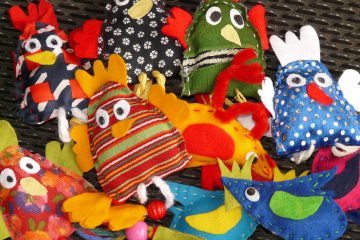
Many teachers are back in school and last night’s year-starting #langchat topic was, by a large majority vote, review techniques that get students moving forward quickly after a long break. I was sick and wasn’t able to join in the conversation but I’m going to assume that someone mentioned games. I would have! Who wouldn’t want the back-to-school routines broken up with some great games?
As you start your year and think about games to review and practice, here’s some advice.
Fun = learning! (Not!)
Research tells us that when students are having fun (or other emotions are attached to an activity) that memory is encoded more easily and more permanently. After all, don’t young children learn the most through play?
That doesn’t mean, however, that students are learning whenever they’re playing. In order for a game to be helpful, it has to involve content that is worth being remembered. So how do we make sure that’s happening?
One is the loneliest number
We’ve all seen them and tried them – games that involve students using discrete (individual, disconnected) words without attention to what they mean. (Word search, anyone?) Well, being realistic, there will always be those days when there’s more to do than minutes to do them and I just need my students to be occupied doing something while I grade a few papers I couldn’t stay awake for last night, but as a general practice, discrete word games aren’t helpful.
This doesn’t mean we shouldn’t do vocabulary practice, just that we should always connect words to their meaning. On the one hand, you have an app game like Ruzzle, where players connect letters to form any word. It’s fun and I love playing it, but I often don’t even know what the word I just made even means. I’m just glad I got points for it. Or a word search along the theme of “At the beach.” Okay, so I know the words have something to do with the beach, but otherwise I’m just searching for words in the grid, without any attention to what they mean. On the other hand, you could have a vocabulary game where you describe the meaning and students have to come up with the word. I like to use the Align the Stars powerpoint game for a game like this. It’s a challenge, but so much better (and always in intermediate classes) to give the definition in the target language. Doing this with a Jeopardy! game from Jeopardy Labs is fun too – try doing them in categories like “people at the park” or “words you hear from a teacher.”
Tweak & share
I rarely come across a game that’s simply unredeemable. If you see a game suggested and it has some qualities that don’t quite match what we know about language learning, think about how you can tweak them. I went to a games session at Central States Conference one year and came away with a lot of ideas about how to use games I didn’t quite agree with but could tweak to do what I wanted to do. Check out how Martina Bex has been trying to add meaning value to Wordoku to see what I mean. I’m not sure her changes are quite contextualized enough for me, and they target chunks too much in the TPRS randomness that bothers me, but I think she’s asking all the right questions about games! Look at this blog post from an EFL teacher; what games there are keepers? What might need a little tweaking?
Then share with the rest of us! What games have worked for you to review and practice? What games get your students using real language in fun ways? For more ideas of games that have worked for my students, check out my games tag.
3 Comments
Comments are closed.




My favorite is still the Logic Grid Puzzle…but I think that’s mostly because I have always loved doing them in English, too 🙂
Logic Grid Puzzle? Explain more please! 🙂
Dear Sara-Elizabeth!
It is sooo important that games have a clear purpose, provide a context and go beyond the one word level!! Thanks for shedding light on this subject and thanks for all you are doing to “scaffold” our profession, Sara-Elizabeth!!